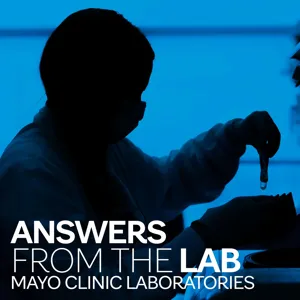337 - Prevention & Intervention Strategies for AD

In today's episode, Naila provides an overview of 14 articles published in November 2023 on non-pharmacological interventions for AD. You'll hear about cognitive training, music therapy, chair yoga, providing support to caregivers, and a range of neural stimulation techniques. Enjoy!
Cognitive and Social Factors (2:26)
Lifestyle interventions (13:40)
Stimulation Techniques (19:20)
--------------------------------------------------------------
You can find the bibliography for this episode here, or by clicking the link below:
https://drive.google.com/file/d/1A4HZVCtgh5AwZkd5V2ATZSFAxGJt48q3/view?usp=drive_link
To access the folder with ALL our bibliographies, follow this link (it will be updated as we publish episodes and process bibliographies), or use the link below:
https://drive.google.com/drive/folders/1bzSzkY9ZHzzY8Xhzt0HZfZhRG1Gq_Si-?usp=sharing
You can also find all of our bibliographies on our website: amindr.com.
--------------------------------------------------------------
Follow-up on social media for more updates!
Twitter: @AMiNDR_podcast
Instagram: @AMiNDR.podcast
Facebook: AMiNDR
Youtube: AMiNDR Podcast
LinkedIn: AMiNDR Podcast
Email: amindrpodcast@gmail.com
--------------------------------------------------------------
Please help us spread the word about AMiNDR to your friends, colleagues, and networks! And if you could leave us a rating and/or review on your streaming app of choice (Apple Podcasts, Spotify, or wherever you listen to the podcast), that would be greatly appreciated! It helps us a lot and we thank you in advance for leaving a review! Don’t forget to subscribe to hear about new episodes as they come out too.
Thank you to our sponsor, the Canadian Consortium of Neurodegeneration in Aging, or CCNA, for their financial support of this podcast. This helps us to stay on the air and bring you high quality episodes. You can find out more about the CCNA on their website: https://ccna-ccnv.ca/.
Our team of volunteers works tirelessly each month to bring you every episode of AMiNDR. This episode was scripted and hosted by Naila Kuhlmann and Christy Yu, edited by Scott Prins, and reviewed by Anusha Kamesh. The bibliography was made by Rob Cloke and wordcloud was created by Salodin Al-Achkar (www.wordart.com).
Big thanks to the sorting team for taking on the enormous task of sorting all of the Alzheimer’s Disease papers into episodes each month. For November 2023, the sorters were Elyn Rowe, Christy Yu, Salodin Al-Achkar, Naila Kuhlmann and Anusha Kamesh. Also, props to our management team, which includes Sarah Louadi, Ellen Koch, Naila Kuhlmann, Elyn Rowe, Anusha Kamesh, Lara Onbasi, Joseph Liang, Judy Cheng, and Christy Yu, for keeping everything running smoothly. AMiNDR was founded in 2020 by Sarah Louadi, Ellen Koch, Elyn Rowe, and Naila Kuhlmann.
Our music is from "Journey of a Neurotransmitter" by musician and fellow neuroscientist Anusha Kamesh; you can find the original piece and her other music on soundcloud under Anusha Kamesh or on her YouTube channel, AKMusic.
https://www.youtube.com/channel/UCMH7chrAdtCUZuGia16FR4w
--------------------------------------------------------------
If you are interested in joining the team, send us your CV by email. We are specifically looking for help with sorting abstracts by topic, abstract summaries and hosting, audio editing, creating bibliographies, and outreach/marketing. However, if you are interested in helping in other ways, don't hesitate to apply anyways.
--------------------------------------------------------------
*About AMiNDR: *
Learn more about this project and the team behind it by listening to our first episode: "Welcome to AMiNDR!"

